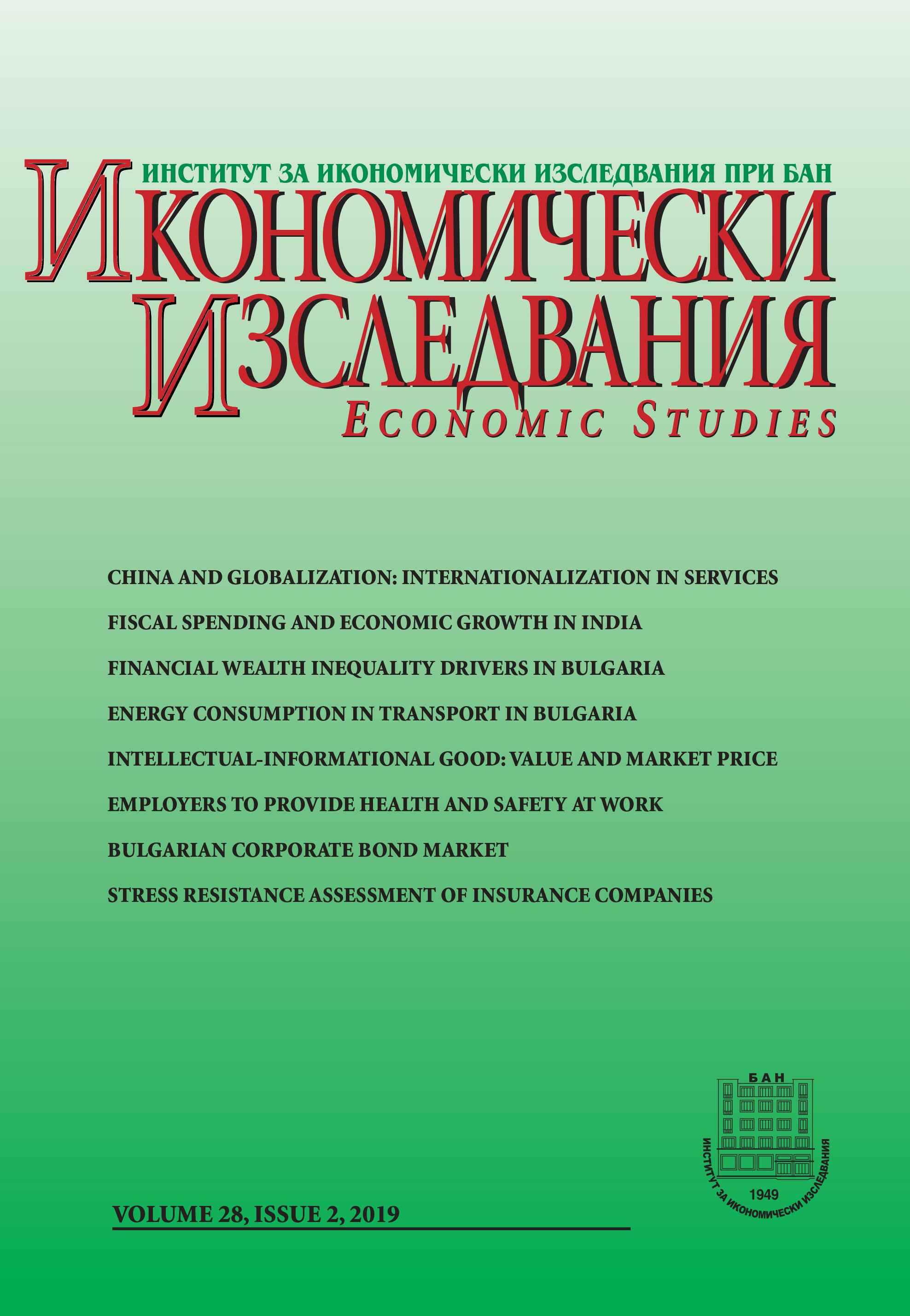Financial Wealth Inequality Drivers in a Small EU Member Country: An Example from Bulgaria during the Period 2005-2017
Financial Wealth Inequality Drivers in a Small EU Member Country: An Example from Bulgaria during the Period 2005-2017
Author(s): Petar Ilkov Peshev, Statty Stattev, Kristina Stefanova, Meglena LazarovaSubject(s): Economy, National Economy, Socio-Economic Research
Published by: Институт за икономически изследвания при Българска академия на науките
Keywords: Inequality; Inequality drivers; financial wealth distribution; Gini index; Top 1 percentile; ARDL models; Cointegration
Summary/Abstract: In this scientific paper financial wealth inequality (FWI) in Bulgaria during the period of 2005:Q4-2017:Q4 has been analysed. Households’ bank deposits are the best-known and most popular means for storing financial wealth (FW) among local individuals, assuming to be relevant proxy for calculating FWI measures. By using real data on quarterly bank deposit’s distribution we calculate Gini coefficients, Top 1 percentile and Top 10 decile FWI indicators. Using these variables as dependent variables several econometric models have been developed using the ARDL bound testing approach of Pesaran and Shin (1999) and Pesaran et al. (2001). Long-term and short-term drivers of the FWI has been identified. Econometric results suggest that financial deepening, stock prices, interest rates and inflation contributes to FWI in the long run. Some of those variables help however decrease the wealthiest decile and percentile’s financial wealth. House prices are having limited negative impact on the FWI. In the short term higher FWI in the past is indicative for higher values of the FWI measures in the future. Also, positive short-term relationship is maintained by the stock market performance Higher financial deepening is in negative association with the quarterly change of the FWI in the short-run. Amon the important short-term determinates of the FWI are also: interest rates on loans, general price level, introduction of flat tax rate of 10%, the Great recession, and Corporate commercial bank default on liabilities. Some of these factors have the opposite meaning for the FWI measured through the wealthiest percentile and wealthiest decile.
Journal: Икономически изследвания
- Issue Year: 2019
- Issue No: 2
- Page Range: 41-72
- Page Count: 32
- Language: English

